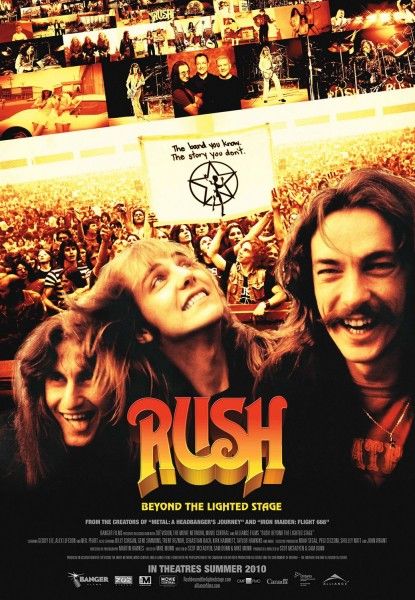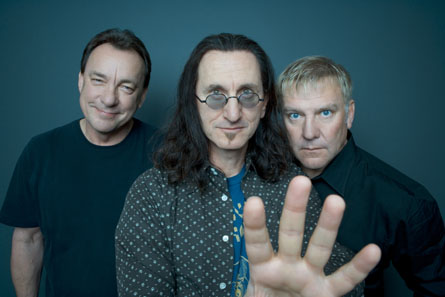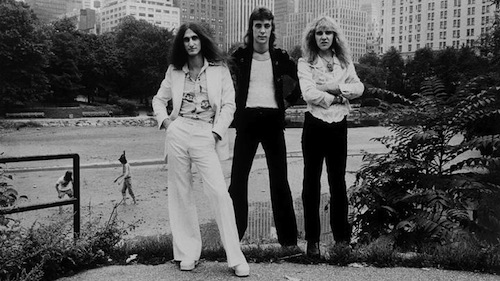
All right, this is a crazy one for me to be writing about… See, as a kid back in the 70s, I always hated Rush — when I was 8 I had my very own copy of Black Sabbath’s Paranoid on 8-track and listened to it until it fell apart, so it’s safe to assume that Geddy Lee’s high, squeaky voice may have put me off a little. But no, the real reason I hated Rush was because of all the kids who loved Rush — snooty, insufferable little douches, one and all. Sure, the Rush fans weren’t as bad as the Yes fans, but they came remarkably close.
So why did I watch Rush: Beyond the Lighted Stage, a documentary about a band whose fans I wanted to beat up every time I set foot on the playground? Because the fine tuneage of Geddy Lee, Alex Lifeson and Neil Peart finally won me over about five years ago. I don’t know how it happened, exactly, but now I crank 2112 and Moving Pictures (among others) all the time.

Well aware of my newfound love for the Canadian rockers, my buddy Don Adams told me I needed to see Beyond the Lighted Stage, so I got my hands on it via Netflix. Now keep in mind, I went into this movie not really knowing a damn thing about Rush, and it immediately dispelled one of my long-held beliefs: that Lee, Lifeson and Peart were a bunch of smartypants college boys who stopped studying one day and went “Hmmmfsay, fellows — you know what might be good for a hoot? Let’s form one of those rock combos that the kids seem to enjoy so much. Hmf hmf!” In fact, all three of them (and original drummer John Rutsey) were just run-of-the-mill kids, almost certainly headed down the path of working for their dads, without much hope of ever getting out of their hometown let alone becoming rock superstars. The only one who could even be called an honest-to-pete smartypants is Neil Peart, and that’s really only because he read his ever-lovin’ ass off as a kid.
I was riveted by this flick, largely because the guys in Rush are such a likable bunch of lads — er, old men. It’s also refreshing that it never sinks into the standard drug-induced rock n’ roll lifestyle dramatics — in fact, Gene Simmons (KISS, as if I even need to mention that) pokes fun at the boys for not partaking of the veritable feast of groupies laid out before them during the mid-70s, when Rush was opening for KISS.
It’s also interesting to hear folks ranging from Simmons to Billy Corgan to Trent Reznor to Jack Black discussing how much they love the band, and in one of my favorite moments, Sebastian Bach (Skid Row) describes how he bought 2112, listened to it, then went out and read Ayn Rand’s The Fountainhead — “This rock band’s getting me all fired up about literature!”

Now, don’t get me wrong — I still think a lot of Peart’s lyrics are pretty goddamn goofy and overwrought, but I also came away from this movie with the impression that the guys in the band are perfectly aware of how goofy some of the songs are. They don’t come off as being pretentious or precious about their music in any way — that was apparently the job of those snotty little creeps in junior high.
I’d have to put Rush: Beyond the Lighted Stage on my list of favorite movies for 2010 and give it my highest recommendation. I still hate Yes, however.
There are no comments